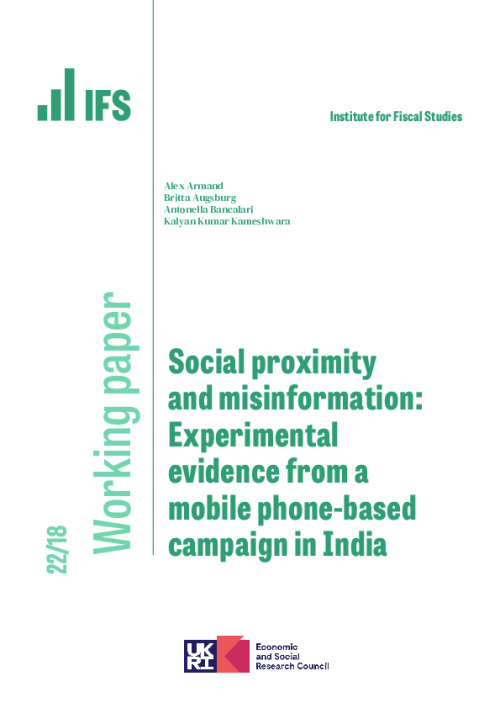We study how social proximity between the sender and the receiver of information shapes the effectiveness of preventive health behaviour campaigns and the persistence of misinformation. We implement a field experiment among a representative sample of slum residents in two major Indian cities characterized by Hindu-Muslim tensions. We show that informative messages are effective at improving evidence-based behavior, but not non-evidence-based behavior. These findings do not differ by social proximity, signalled by religion. However, when sender and receiver share the same religion, the intervention significantly reduces misinformation carrying in-group salience, highlighting the role of social proximity in fighting misinformation.
Authors

Associate Director
Britta is an IFS Associate Director, Associate Staff at the Department of Economics at the UC and Researcher at NIHR Obesity Policy Research Unit.

Research Fellow Nova School of Business and Economics
Alex is an IFS Research Fellow, an Associate Professor at Nova School of Business and Economics and a Research Affiliate at the CEPR.

Senior Research Economist
Antonella Bancalari is a Senior Research Economist at the Institute for Fiscal Studies.

Kalyan Kumar Kameshwara
Working Paper details
- DOI
- 10.1920/wp.ifs.2022.1822
- Publisher
- Institute for Fiscal Studies
Suggested citation
Armand, A et al. (2022). Social proximity and misinformation: experimental evidence from a mobile phone-based campaign in India. London: Institute for Fiscal Studies. Available at: https://ifs.org.uk/publications/social-proximity-and-misinformation-experimental-evidence-mobile-phone-based-campaign (accessed: 28 April 2024).
More from IFS
Understand this issue

What is the case for carbon taxes in developing countries?
Carbon pricing can be a powerful tool for reducing greenhouse gas emissions. What are the risks and opportunities from such policies in developing countries?
4 November 2021

Gender norms, violence and adolescent girls’ trajectories: Evidence from India
24 October 2022
Policy analysis
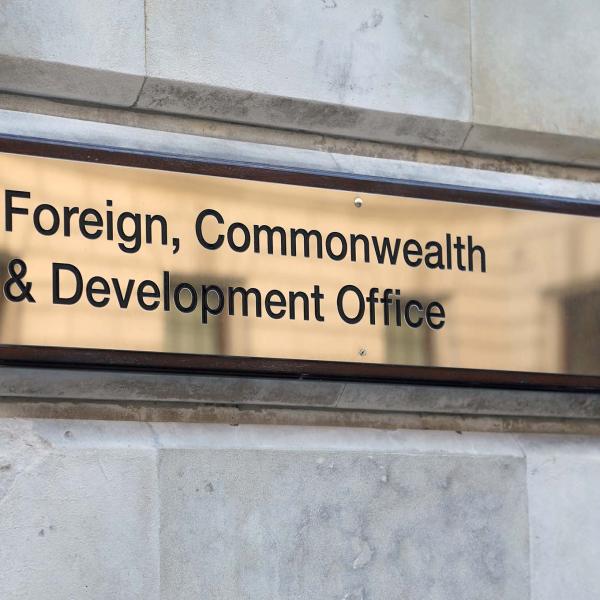
Three ways to improve the design of the UK’s overseas aid spending target
18 January 2024

Distributional analysis of Ghana’s tax system
18 December 2023
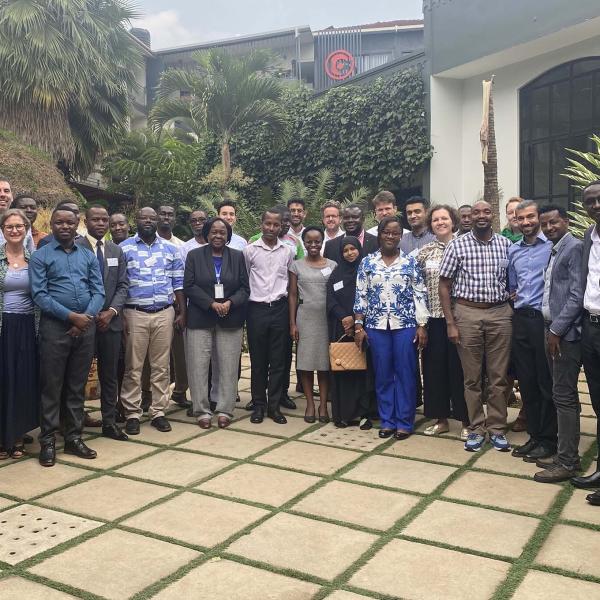
FCDO renews TaxDev funding for the next seven years
19 September 2023
Academic research
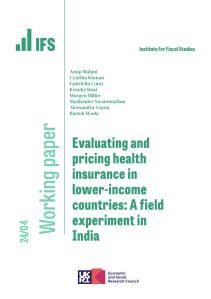
Evaluating pricing health insurance in lower-income countries: A field experiment in India
14 March 2024

Sample composition and representativeness on Understanding Society
2 February 2024
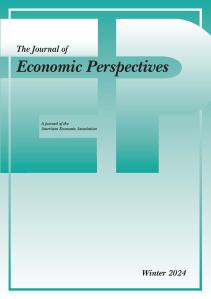
Does the value-added tax add value? Lessons using administrative data from a diverse set of countries
9 February 2024
